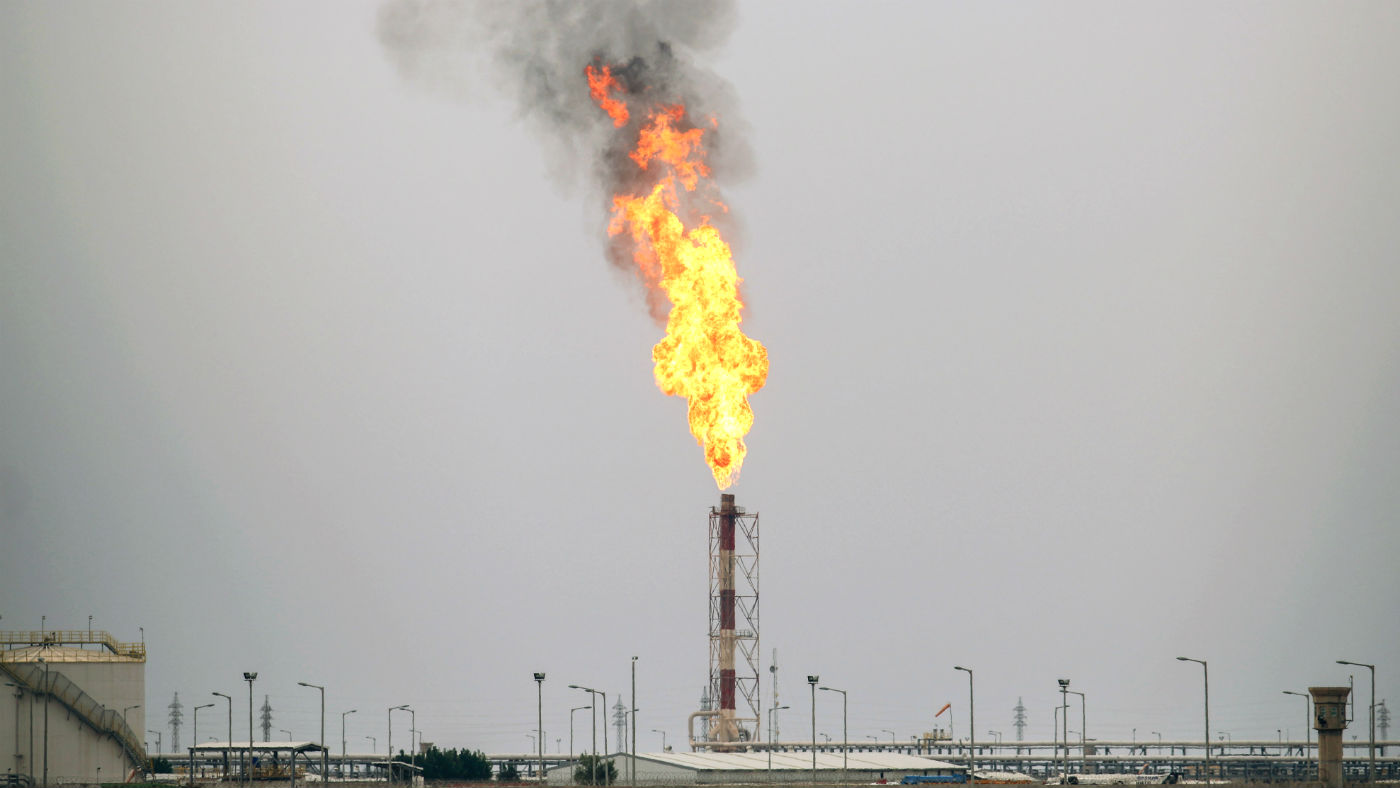Oil price posts two-year highs - but how long can it last?
Brent rose above $59 a barrel this week, its best third-quarter showing since 2004

A free daily email with the biggest news stories of the day – and the best features from TheWeek.com
You are now subscribed
Your newsletter sign-up was successful
Oil price: five reasons why oil has re-entered a bear market
08 July
Oil re-entered a bear market yesterday as the price for Brent Crude, the international benchmark, recorded its largest one-day loss since February.
On Monday, the oil price fell by six per cent and it has continued to dwindle, reaching $55.40 a barrel at around 8am BST today. The price of Brent has now fallen by more than a fifth since it hit a year-high of $69.63 a barrel in May. Bear markets are commonly defined as occurring when prices fall 20 per cent from their peak.
The Week
Escape your echo chamber. Get the facts behind the news, plus analysis from multiple perspectives.

Sign up for The Week's Free Newsletters
From our morning news briefing to a weekly Good News Newsletter, get the best of The Week delivered directly to your inbox.
From our morning news briefing to a weekly Good News Newsletter, get the best of The Week delivered directly to your inbox.
So what is causing the slide?
The Financial Times identifies five key factors behind the falling oil price. The first is the Iran nuclear deal, which is expected to be completed by the end of the week. If it goes through, it is likely that sanctions limiting Tehran's ability to trade oil will be lifted, which could add up to 800,000 barrels a day to the market within a year.
The second factor is China's economic slowdown, which will affect demand. "When China's economy wobbles, the oil market is quick to respond", the FT says. Carsten Menke, a commodities analyst at Julius Baer echoes the FT's analysis, noting that "commodity markets are signalling broad-based concerns about Chinese demand and the government's ability to stimulate growth".
Another factor causing oil to re-enter a bear market is the ongoing turmoil in Greece. The country's No vote in last Sunday's referendum on whether to accept the latest bailout package has catapulted the country into a new period of uncertainty. While the country's difficulties are unlikely to have a direct impact on demand for oil, they have led to a gradual strengthening of the US dollar. As the FT notes, "commodities like oil that are priced in dollars tend to move inversely to the US currency".
A free daily email with the biggest news stories of the day – and the best features from TheWeek.com
Fourth is the unexpected resilience of the US shale gas market which has proved itself to be more immune to lower oil prices than many analysts expected. Shale gas production in conjunction with oil coming from traditional sources has contributed to a global glut that has pushed energy prices down.
Finally, Opec's refusal to curb its own output has contributed to oil inventory levels in Western Europe hitting their highest levels in two years.
So can we expect to see the oil price rebound? Possibly, say analysts at consultancy Facts Global Energy, but not any time soon: "Low prices will eventually cure low prices. But we must not get too excited too quickly," they said in a note.
-
 Why is the Trump administration talking about ‘Western civilization’?
Why is the Trump administration talking about ‘Western civilization’?Talking Points Rubio says Europe, US bonded by religion and ancestry
-
 Quentin Deranque: a student’s death energizes the French far right
Quentin Deranque: a student’s death energizes the French far rightIN THE SPOTLIGHT Reactions to the violent killing of an ultraconservative activist offer a glimpse at the culture wars roiling France ahead of next year’s elections
-
 Secured vs. unsecured loans: how do they differ and which is better?
Secured vs. unsecured loans: how do they differ and which is better?the explainer They are distinguished by the level of risk and the inclusion of collateral
-
 How might the Israel-Hamas war affect the global economy?
How might the Israel-Hamas war affect the global economy?Today's Big Question Regional escalation could send oil prices and inflation sky-high, sparking a worldwide recession
-
 Recent mega-mergers could signal a turning point for the US oil industry
Recent mega-mergers could signal a turning point for the US oil industryTalking Point Both Chevron and Exxon have recently spent billions to acquire smaller oil companies
-
 Has Saudi Arabia lost control of oil prices?
Has Saudi Arabia lost control of oil prices?Today's Big Question Kingdom goes it alone to cut production, risking tension with US and reigniting cooling inflation in Europe
-
 US angered by Opec+ oil cut
US angered by Opec+ oil cutSpeed Read Energy prices to rise further as producers slash supply by two million barrels a day
-
 Global oil demand forecast lowered for 2020 and 2021
Global oil demand forecast lowered for 2020 and 2021Speed Read IEA report says jet fuel demand remains the major source of weakness
-
 Are US-Iran tensions flaring again?
Are US-Iran tensions flaring again?In Depth Trump threatens military action over Twitter
-
 Can a deal be struck to raise oil prices?
Can a deal be struck to raise oil prices?In Depth Opec+ will convene today over video link in a bid to boost crude
-
 What do negative oil prices mean?
What do negative oil prices mean?In Depth Perfect storm of oversupply and storage shortages sees producers paying to get rid of US crude